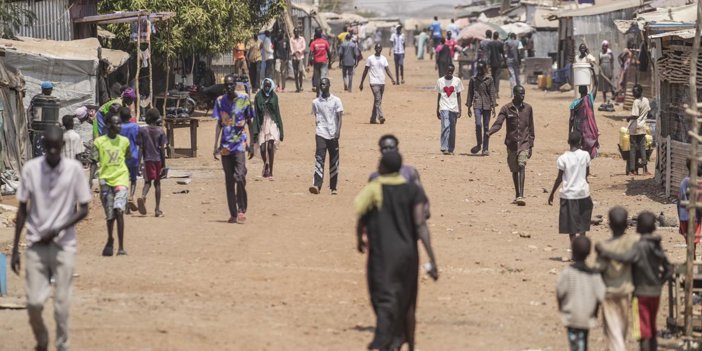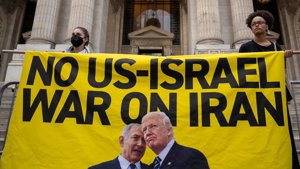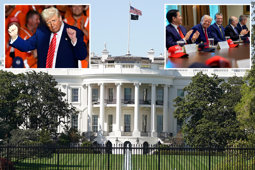
Judge May Reverse Migrant Deportation
DHS exposed the violent criminal pasts of migrants deported to South Sudan, as a judge considers forcing their return to the U.S.
Judge Considers Forcing Return of Deportees
A Biden-appointed federal judge may order the return of eight convicted migrants deported to South Sudan, following a dramatic disclosure by the Department of Homeland Security (DHS) outlining their violent criminal histories. U.S. District Judge Brian Murphy is expected to issue a decision after a Wednesday hearing, amid legal challenges from attorneys representing some of the deportees.
The individuals aboard the removal flight include convicts with charges ranging from first-degree murder to sexual assault. DHS revealed the nature of their crimes in a press briefing after Judge Murphy signaled he might intervene. “No country on earth wanted to accept [the migrants] because their crimes are so uniquely monstrous and barbaric,” said DHS Assistant Secretary for Public Affairs Tricia McLaughlin. “These heinous individuals have terrorized American streets for too long.”
McLaughlin pushed back against judicial involvement, saying, “It is absurd for a district judge to try to dictate the foreign policy and national security of the United States of America.”
DHS Details Criminal Backgrounds
Among those deported is Thongxay Nilakout, a Laotian citizen convicted of first-degree murder and robbery, currently serving a life sentence before ICE took custody. Also on the flight is Jesus Munoz-Gutierrez of Mexico, convicted of second-degree murder. Both were recently arrested by ICE and deported.
Dian Peter Domach, a South Sudanese national, has a record including DUI, possession of a defaced firearm, and robbery involving a firearm. He was sentenced to multiple years of confinement across separate charges.
Two Burmese nationals, Kyaw Mya and Nyo Myint, were also removed. Mya was convicted of lascivious acts with a child under 12 and served four years of a 10-year sentence. Myint faced 12 years in prison for first-degree sexual assault of a mentally and physically incapacitated victim and was also charged with aggravated assault. ICE arrested both in February.
Another deportee, Tuan Thanh Phan of Vietnam, was convicted of first-degree murder and second-degree assault.
According to DHS, several countries—including Myanmar, Vietnam, Laos, and Mexico—refused to accept the return of their nationals, forcing DHS to reroute deportations to South Sudan. The migrants remain in DHS custody under Murphy’s emergency ruling.
Legal Challenges and Judicial Pushback
Attorneys for the deportees argue that the deportations to South Sudan constitute unlawful third-country removals. They contend that the process violated Judge Murphy’s prior ruling, which requires migrants be given a “meaningful opportunity” to demonstrate that removal to a third country would endanger them.
Murphy had previously ruled that unannounced deportations to countries such as Libya would “clearly” violate judicial guidelines for third-party removals. His Tuesday order mandates that the Trump administration maintain custody of the deported individuals until further legal review determines the lawfulness of their removal.
As legal arguments continue, the case highlights tensions between immigration enforcement policy, judicial oversight, and international cooperation in the deportation of criminal non-citizens. A final ruling on whether the plane must return the migrants to U.S. soil is expected imminently.






